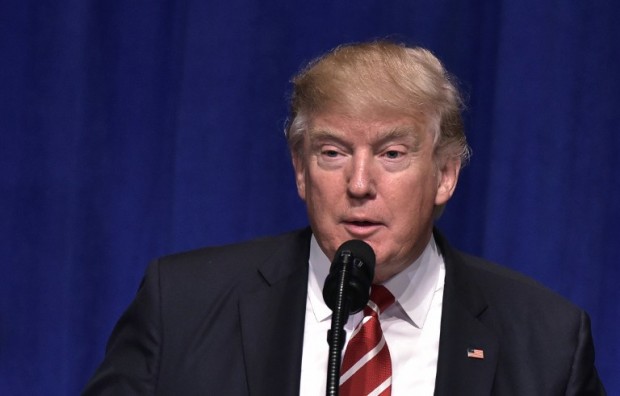Trump’s immigration order: A legal headache
Donald Trump’s executive order on immigration has legal experts grappling with a key question: how broad is the US president’s reach when it comes to shaping migration policy?
Trump’s decree slapped a blanket ban on entry for nationals of seven predominantly Muslim countries for 90 days and barred all refugees for 120 days. Refugees from Syria were blocked indefinitely.
But a federal judge issued a temporary nationwide suspension of the president’s order, which the US government swiftly appealed.
The ultimate ruling in the case could clear confusion regarding Trump’s executive reach and leave a lasting legal impact. Here is a look at the process:
Who will decide?
Article continues after this advertisementThe case could land in the Supreme Court, the nation’s top bench that is the final interpreter of US constitutional law.
Article continues after this advertisementIn the meantime, uncertainty reigns after federal courts across the country have delivered a range of decisions.
All eyes are now on the Ninth Circuit Court of Appeals, based in San Francisco, that is weighing Judge James Robart of Seattle’s recent order temporarily suspending the ban nationwide.
A hearing has been set in the case for Tuesday at 3:00 pm Pacific time (2300 GMT – 7 a.m. Wednesday, Manila time).
Federal judges in several other states — including California and New York — have also ruled against Trump’s executive order, and a judge in Boston declined to review it, but Robart’s ruling has the greatest sweep.
Who is involved?
The Trump administration officially challenged Robart’s ruling by filing an emergency motion with the Ninth Circuit Court of Appeals saying that suspending the ban was causing “irreparable harm” to the American public.
The US government on Monday defended the president’s travel ban as a “lawful exercise” of his authority, and claimed that a federal court made a mistake in barring enforcement of the measure.
The primary plaintiffs in the case are two Democratic-leaning states that border Canada: Washington, where Robart sits, and Minnesota. They were backed in a court brief filed by 16 state attorneys general.
A number of groups have also filed legal briefs backing the states’ efforts, including the American Civil Liberties Union, the Southern Poverty Law Center — which monitors extremism in the US — and the HIAS refugee protection organization.
Nearly 300 law professors and some 100 Silicon Valley firms have also submitted arguments supporting Robart’s opinion.
Trump attacked Robart in a string of fiery Twitter posts on Saturday.
“The opinion of this so-called judge, which essentially takes law-enforcement away from our country, is ridiculous and will be overturned!” the president wrote.
What are the arguments?
Trump justifies his controversial decree with Article II of the Constitution, which grants the president authority to direct immigration policy and conduct foreign affairs.
His argument is also founded in part on a 65-year-old provision of the federal Immigration and Nationality Act, which allows the president to suspend US entry of any category of foreigners when he deems their presence “detrimental to the interests of the United States.”
Government lawyers are trying to bolster this argument by saying that the judiciary is unqualified to decide on national security matters.
“Unlike the president, courts do not have access to classified information about the threat posed by terrorist organizations operating in particular nations, the efforts of those organizations to infiltrate the United States, or gaps in the vetting process,” they wrote in their appeal.
Those opposed to the White House decree also cite the Constitution, saying that the executive order violates its fundamental principles including those on equality, freedom of movement and freedom of religion.
They also emphasize that the role of the judicial branch is to check the power of the executive, especially to protect minorities.
The states pin the legitimacy of their complaint on the fact that, as states, Trump’s ban has negative consequences on employment and in the education and business sectors.
They also warn that reinstating the ban could threaten public order, considering the chaos that broke out, especially in airports, following its hurried implementation.
What is the next step?
The appeals court will likely take one of three options: reinstate the ban, confirm its suspension or schedule an additional hearing.
If the ban is restored, authorities have yet to indicate whether they have planned measures to avoid further airport detentions or deportations, which have already fueled international outrage and mass protests.
If they take the second option, Robart’s decision would likely apply nationwide, keeping the US open to refugees and those from the seven countries targeted by the ban.
The losing party would be able to request the Supreme Court to take on the case.
If the nation’s highest court accepts, five of the eight total judges would be required to reverse the decision from the Court of Appeals.
Achieving that majority poses a challenge: the Supreme Court is currently ideologically split between four conservatives and four progressives.
Trump has nominated a conservative, Neil Gorsuch, to fill the vacant seat. But he must first get confirmed by the Senate./rga
